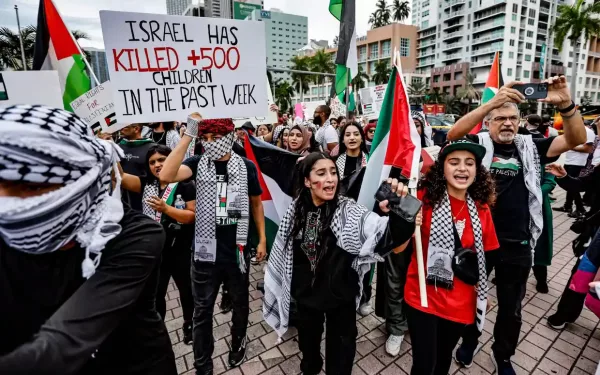In light of the recent events unfolding between Palestine and Israel, demonstrations have increased across the globe due to protests demanding the freedom of Palestine and advocating for basic humanitarian principles. However, it is natural to ask the question: do protests actually have a substantial impact?
The main purpose of a demonstration is to be an agent of change and raise awareness of the cause that the individuals are protesting for. There are many determinants of the effectiveness of a protest. For instance, a protest is more likely to be effective if more individuals are involved hence raising the participation rate. However, the main scope of a demonstration’s impact can be summarised on two main factors: the type of demonstration and the location relative to the movement.
Peacefully in action
Regarding the type of demonstration, peaceful demonstrations tend to be more effective. Gordana Rabrenovic, an associate professor of sociology at Northeastern University and director of the Brudnick Center on Violence and Conflict, says, “There’s certainly more evidence that peaceful protests are more successful because they build a wider coalition.” Her statement on peaceful protests refers to peace from the side of protestors, regardless of the potential involvement of the police or other law enforcement authorities in retaliation.
A common case of this was during the protests that arose after the murder of George Floyd, an innocent black man, by a white policeman. According to an article by Northeastern Global News, “Black people in the U.S. are not only three times more likely to be killed by police than white people, but they’re also less likely to be armed than white people during these interactions with police.”
However, in most cases of civil rights movements, violence is the ignition that propels a movement. Thus, individuals who believe in negative reciprocity may want to use violence in demonstrations. Nevertheless, it needs to be clear that a violent approach does not invite people on the sidelines to identify with the issue or the cause of the demonstrations.
Arguably, the relation of the location to the issue at hand can be more influential than the kind of demonstration. For example, an issue that centres around a vulnerable country being protested in Western countries will have a larger impact than if it was protested in countries that lack political power. Similarly, if a country’s citizens are educated on a topic, then holding demonstrations may not be as meaningful.
The long run for change
On the other hand, the “demonstration effect” proposes an alternative theory. Based on the definition from The Financial Express, the demonstration effect describes the phenomenon that the development in one location can act as an agent for emulation in another location. The demonstration effect can be used to promote both vices and virtues. Ultimately, demonstrations appear ineffective in the short term because they do not spark the change that protestors wish to see. Yet, they are still significant because their long-term effects can be institutionalized.

Protests often shed light on issues hidden from the general public by propaganda. A perfect example of this is the ongoing demonstrations about Palestinian liberation in various countries like Spain, the United States, the Netherlands, the United Kingdom, and many more. The protests are shedding light on the struggles that Palestinians are going through due to the apartheid and war crimes. The reason why these particular protests are meaningful is that they expose political propaganda created by Western media and ultimately raise awareness of the tragedies suffered in Gaza.
Another factor that can sway the outcome and the effectiveness of a demonstration is the country’s regime where demonstrations are being held. No matter how peaceful or how well-organized a protest is, if a country’s regime is oppressive the protest will not reach its full potential agency. The level of democratization within a country heavily determines the outcome of protests, as some state responses may be brute repression which would then hinder the momentum of the protests. For instance, the Green Movements in Iran were unsuccessful because the protests were met with brute repression; officers attacked activists and even imprisoned some of them.
Final thoughts
Ultimately, the effectiveness of a protest depends on the type of protest and the location in which the protest takes place. Protest can purport to achieve different outcomes including raising awareness or creating government reaction. Regardless of the goal of the protest, it does not need to be rendered ‘fruitless’ if it does not produce immediate change. Sometimes, protests serve to comfort each other through tough times because there is something quite powerful about a mass of people – coming from different backgrounds – gathering together for one.







